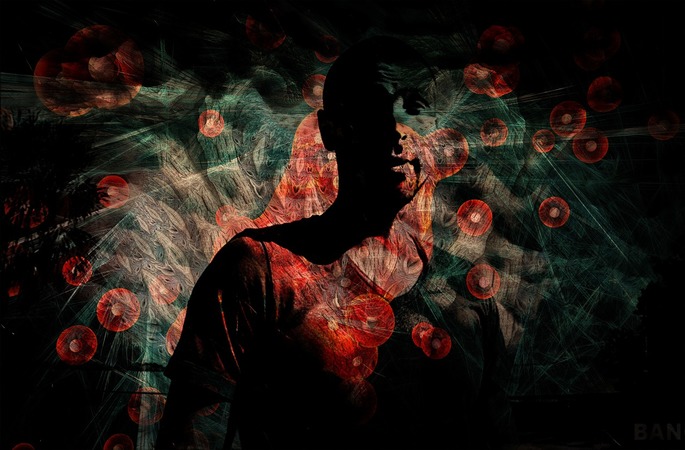I am not sure what struck me to leave my base in favour of an unknown destination, for unseen – and, more aptly, unforeseen – challenges: leaving a job as a doctor in Kathmandu in favour of a hospital out in some far-flung region in a semi-rural setting in Nepal in one impulsive moment. How did it come about, I have no answer.
Long story short: On a wintry night, I found myself huddled among fellow passengers out on a long-route night-bus (one of those bus rides or experiences that are cherished when it comes to travelling to different parts of Nepal), occasionally stepping out for tea or snacking or a mere outing and at other times relishing the Bollywood and Nepali movies out on the inbuilt televisions, and heading for a lesser-known place and an equally unknown hospital that had, fortunately though, accepted me as a ‘medical officer’. Doesn’t it sound akin to a script of movies not very different from the ones I’d been watching out on the bus?
Hmm. Now, the bus dwindled through unknown terrain on its way from Kathmandu to Taplejung, a semi-remote hilly region. The travel felt rapturous, enigmatic, enthralling. To say the least. Also the travel, and travels like these, had reasons for being arranged, to appease my wary and dilapidated soul.
A little backdrop: My parents were divorced when I was nine. So these bus tours or outings in buses have also had a significance of a different sort, personally. How? Or why?
Well, after my parents’ divorce my father won custody of me. And this meant that I had to travel occasionally to meet my mother, who was now residing with her ailing parents–her solace and comfort from the big, bad World. Or more aptly her solace and comfort from her tormenter: my father. But was my father truly evil, and a tormentor? I could never tell. Personally, I on both my parents and wished that they lived together in the same household. But alas it was not to be! In any case, I have always from taking sides; I loved them both, and still, do!
During these trips– even occasional meanderings which weren’t related to meeting either of my parents–I have been in my most contemplative and thoughtful state of being. And, by the same token, and surprisingly enough, at utmost ease.
To add, in these trips I came and have come – to terms with reality (I always did. Almost unfailingly). Tolerance and empathy were created in an aftermath, in the wake, in the repercussion. That was almost a norm. Luckily. So, on the one hand, my entire life–and my parents’ marital discord and the inherent cacophony and chaos and dissent and hurt and anguish- would flash right before my eyes on these outings or bus rides. On the other, I’d find myself correcting the wrongs and discords…as though I possessed this giant and cosmic eraser that could right wrongs or amend discords during these very travels. Did reflection and contemplation foster peace or harmony of sorts? I have no answer. In any case, or at any rate, I’ve noticed that bus trips–like the ones mentioned above –helped. They always did; they never failed me, those bus trips and their inherent promise!
I remember a few things from back then when my life wasn’t in shambles: when discord and discords weren’t the norms (far from it; far from it!). Those were the times when I’d frequently find myself seated at a dining table; with my father and mother by my side; curry, rice and vegetables close; and oh, those mouth-watering sweets!…and my parents quietly indulging in eating, my mother pampering me, life feeling perfect, perfect, perfect. Ah, I miss those days. For a long, long time, missing those days had turned into a norm. And in missing…my anguish would grow and grow and my heart would ache and ache. (Yes, indeed I realized I had a heart that had started to ache, and that would ache after my mother was gone, and I realized and perhaps understood or acknowledged how my heart was her abode: her abode, and hers only. Hence the pain in the aftermath!). I was a’momma’s boy’ and now, unfortunately though, this ‘momma’s boy’ didn’t have his mother around. Such tyranny! And I had no one to share…to share the all-pervasive agony and bemusement with. Sad! Unfortunate! These words too became the ‘norm’. In the wake of the destruction of my home.
Now, I remember a few things from back then: of and from my mother. One that stands out is a little conversation (or rather some advice): ‘Son, you should grow up to become a doctor. Why? Because discord is rife and women, our women, are the ‘worst hit bunch’. They don’t get proper nutrition and attention; much is demanded of them, and most are left with ailments of various sorts, again with no hopes or prospects for medical treatment. Unfortunately! You, my son, will take care of them; I’d be proud to have borne a son… You! You, my son, will make me proud someday.’ Those words buzzed my ears long after she was gone after she was long divorced. Of course, I couldn’t fathom the implications of those statements when they were first made. But time would, almost unfailingly, with some kind of cosmic precision, make me come face to face with the undeniable and unarguable magnitude of anguish that women, our women, faced on a constant, daily basis; and sadly this had become apparent with each passing day of my tenure, and long after my mother’s departure .
Cut to this day: the bus arrived at the proposed destination. It was 5 am. Did the bus arrive on time? Late? Later than usual? I couldn’t tell; this was my first trip to this little-known place. And what awaited me at an even more foreign hospital, I had absolutely no idea. It was hot, one could safely conclude. I was greeted by a representative from the hospital; he escorted me to my residence, a place not very far from the hospital where I was to work, soon. The following day was supposed to be my first day at work. I couldn’t wait to start my tenure. The night seemed endless. Yet night was cooler, comparably…fostering some solace and respite.
The following day, I discovered that my first posting was in the emergency room. And my first patient someone who got me mulling over statements made by my mother decades earlier (and one that had occupied my consciousness out on the night-long bus-trip only a day earlier): Son, discord is rife…but women are the worst hit bunch! These words kept buzzing my ears as I got more acquainted with my patient and her condition. Now.
So here is the story, her story, my first patient’s story, events my first day of tenure: A twenty-something fair, lean and pale woman was brought to the emergency room. She was semi-conscious and on the verge of collapse. The three persons who’d brought her in were: her mother-in-law, her husband and her brother.
What had happened? Had she been suffering from some illness–acute or chronic, meaning a recent affliction or something that had been tormenting her for long? I wondered; I considered those very questions as I toiled to resuscitate her, setting up intravenous lines and arranging blood for and subsequent transfusion.
It was apparent that her pallor wasn’t genetic or a thing related to her complexion. She was ill, gravely ill. It appeared that have a drop of blood in her veins, in her body. It appeared that something-perhaps some chronic illness-had robbed her body of every drop of blood…And yet there was another possibility: Could ‘social factors’ and the fact that ‘she was a woman’ have accounted for her morbidity: the grave and dire health condition that she had been in?
This question begged for an answer, and the answer came to the fore as I interviewed the patient’s husband and mother-in-law. I didn’t pose many questions to the unfortunate lady’s brother, who said he’d helped his sister’s mother-in-law and husband bring his sister to the hospital, not surprisingly with a promise that he, being the unfortunate woman’s brother himself would bear the treatment costs. Why? The in-laws (and the woman’s husband) didn’t appear eager to bear the costs of the treatment. Not in the least. And this was apparent to everybody.
The lady’s husband, by contrast, also seemed oblivious and unperturbed. (He didn’t speak much; he was, in fact, reluctant to do so). And so did her mother-in-law. But with some persuasion, the latter spoke, finally: ‘She was fine till yesterday; we don’t know what befell her. We, for our part, took her to a local shaman…And now we have brought her to a hospital. Now it’s your responsibility to save my only daughter-in-law.’
The mother-in-law uttered those words without a care in the world, and without ever looking at the distressed young woman. Not even once did she take a glance at her ailing daughter-in-law. Not even once! What disturbed me wasn’t her lack of display of emotions, but the unabashed way in which she was airing her lack of emotions, as though it was justified and rightful. The spectacle, her demeanour, spoke volumes of what might have befallen the poor woman!
I later confirmed the looming dread through interrogating some of their neighbours, who were well-versed with information and opinion about what could have gone wrong, or what could have led to such a catastrophic event in the poor woman’s life. So here is their version of the story: This lady suffered from a viral infection a few weeks earlier, following which she started ‘bleeding from everywhere’. So she’d bruise easily and her pee and poop would be filled with blood. As they recounted the events, I estimated or concluded that she suffered from a condition called ‘aplastic anaemia which is consistent, in some cases, with a preceding viral illness.
In aplastic anaemia, our bone marrow, the seat of production of the red blood cells that carry oxygen, and white blood cells that ward off infection and platelets that check bleeding, get destroyed. This leads to easy bruising, bleeding and makes the patient prone to infection. Fatigue and general lack of energy in the body is an accompaniment, owing to the lack of oxygen-carrying red blood cells.
So this woman, though gravely ill, owing to her being a daughter-in-law (and unfortunately a woman) had to carry out household duties (surely my claims are backed by the neighbours’ recounting): cooking, tending to and goats, helping the members of the family out in the fields where they were working. Despite her being ill it was the harvesting season. This was an illness that also, unfortunately, cut out her energy and vitality, owing to the actual inherent destruction of blood. And what added insult to injury was this lady’s sister-in-law’s ongoing marriage ceremony, and the usually added responsibilities and hard manual labour! Now, it didn’t take a rocket scientist to figure out what she’d really gone through. Also, it was no wonder that her brother had to persuade the in-laws to bring her to a hospital.
The lady was admitted to the ICU, the needful medical interventions were done, the blood transfusion was ongoing and in a few days, it appeared that she could recover and be restored to full health, with all the help from her near and dear ones… who were far away, and few in number.
Sadly! “Women are the worst hit bunch”! These words kept buzzing my head as I tried to get to sleep, after subsequent successive longer days at work.



